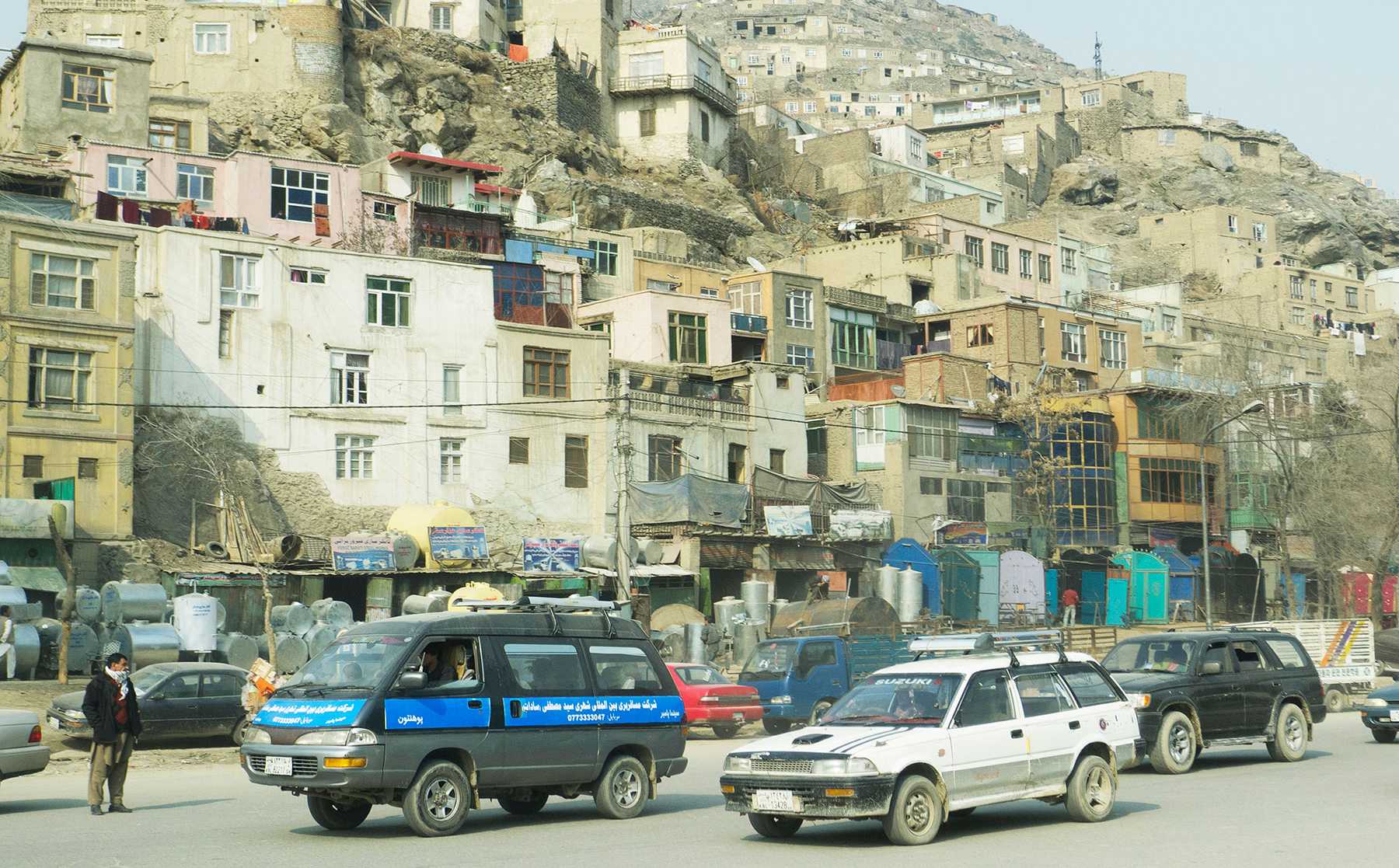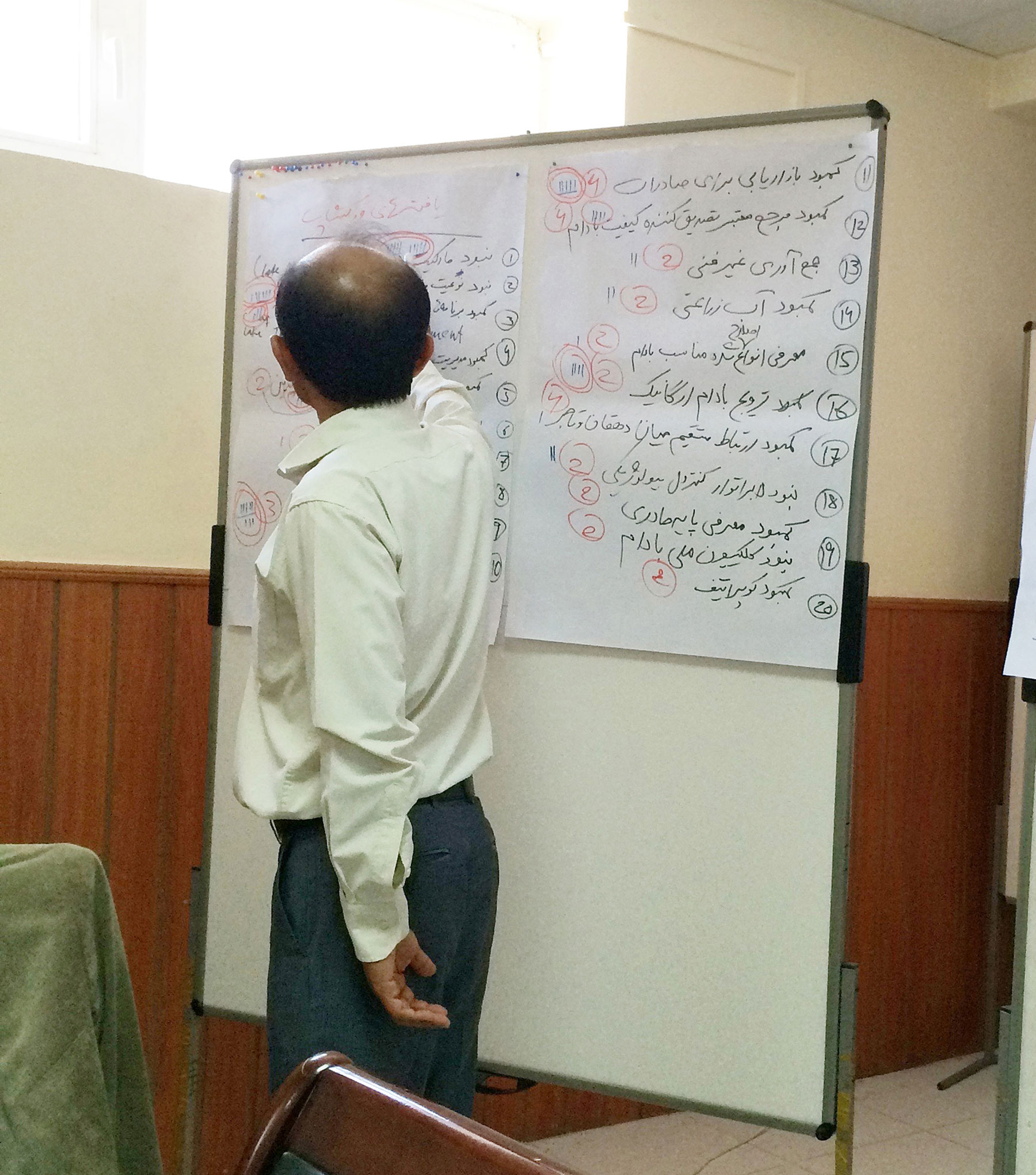The KOF as a Committed Partner in the World
KOF Bulletin
Development aid: thinking of this word, one sees people telling others how to till their fields, or helping them build schools and hospitals. But development aid is so much more. KOF employees are also dedicated development workers, or rather advisors – in particular in the areas of surveys and forecasts.
Many countries are scarred by war, an extremely precarious security situation, political uncertainty, poverty and hunger. Solving these problems is of the utmost priority. However, the further development of a country is often a kaleidoscope made up of a large number of small parts. Thus, for example, a knowledge of the condition of the local economy is also important in order to be able to improve the situation within a country. And economic surveys offer a suitable means for ascertaining this condition. Information concerning the mood of businesses furthermore helps local institutions enter into substantive dialogue with political authorities in order to improve the economic framework conditions. However, many countries lack experience with surveys. And it is here that the KOF comes into play, with its considerable wealth of experience in the area of surveys.
Afghanistan: a country scarred by war
Over the past few years, KOF employees have been deployed on various occasions as advisors in the most disparate parts of the world, in order to guide and support local institutions, such as chambers of commerce and industry, in the development and introduction of country-specific surveys. For example, on the instructions of the German Society for International Cooperation (GIZ), the KOF supported and advised the Afghan Chamber of Commerce and Industry from 2012 until 2015 in relation to the introduction of regular business tendency surveys. Alongside this regular monitoring of economic development, an annual survey was introduced in order to identify the structural problems that hinder the business activities of undertakings.

As Afghanistan is a country with an extremely precarious security situation and poor infrastructure, it is not possible simply to send a few questionnaires out by post or email, as is a matter of course in Switzerland. Since accessibility is not guaranteed and personal interviews would be associated with significant security risks for interviewers, surveys are conducted by telephone. Interviewers were recruited for this purpose and comprehensively trained by the project partner. The results of the 2015 annual survey show that, alongside the precarious security situation in Afghanistan, businesses are confronted with a variety of further problems. These include electricity supply, non-transparent customs regulations or the exerting of political influence on public sector tenders. These results make it possible for the Afghan Chamber of Commerce and Industry to hold discussions with political authorities with the aim of improving framework conditions, without exposing themselves to the charge of representing specific interests.

A further project involving the introduction of a survey of experts was intended to analyse problems within the agricultural value added chains for almonds, wheat, poultry and dairy products in the northern regions of Balkh, Balghlan, Takhar, Badkhshan and Samangan. Acting alongside local partners, the KOF implemented the nominal group technique as part of a pilot workshop in Mazar-i-Sharif. At these workshops, the participating key informants identified and quantified the problems within the relevant value added chains. The workshops are provided with a strong structure involving several confidential evaluation cycles.
After the pilot workshop, the Chamber of Commerce and Industry held various workshops of this type on its own initiative in various regions. For security reasons, the KOF was unable to attend these other workshops in situ. The results of the workshops were published in a report written in English, Pashto and Dari, of which 1,000 copies have been printed.
Kosovo: a young state with political tensions
The KOF’s support to institutions in relation to the introduction of business tendency surveys has not been limited to Afghanistan. For instance, between 2012 and 2016 the Kosovo Chamber of Commerce introduced two surveys with the support of the KOF and with financial backing from GIZ. Up-to-date figures concerning the business situation are of major interest in the young country, with its politically uncertain situation. This demand is now satisfied by regular business tendency surveys and the introduction of a business climate index. Since the country also suffers from structural problems and high unemployment, a so-called bottleneck survey analysing the structural environment was introduced with the support of KOF. In this type of survey, the participating businesses are presented with lists featuring impedimentary factors from the areas of the economy, administrative and regulatory conditions,
infrastructure and general conditions. In addition, businesses indicate problems within their sector and answer questions concerning their investment plans and reasons.
Product quality is one of the problems Kosovo businesses face. They therefore want to invest in order to become more competitive. But that’s not all. Electricity supply has also caused discomfort for businesses over the last few years. Electricity is essentially generated at a lignite-fired power plant near Pristina. The outdated technology involves high electricity costs as well as frequent power cuts. There are now plans to modernise this factory with the backing of international investors. Another problem are high labour costs, which at first sight appears to contradict high unemployment.
High public sector salaries and remittances from the diaspora are fuelling general salary levels. Kosovo is thus a rather expensive location compared to other countries in the region, measured in terms of productivity and product quality. There is also a mismatch between the educational qualifications obtained by the young persons who are coming into the labour market in large numbers and the qualifications actually needed by firms.
Better global economic monitoring
In the wake of the Great Recession of 2009, the United Nations have branded the development and implementation of indicators for the timely monitoring of cyclical development as an important goal. This type of statistic should be implemented in as many countries as possible, including developing countries. The aim is to ensure an improved monitoring of cyclical development. On behalf of Kabul, Afghanistan the UN, the KOF has held workshops in various countries in western Asia and North Africa, such as in Jordan and Egypt this year. The aim of these workshops is to develop a country-specific concept along with plans for implementing business tendency surveys. The KOF monitors the introduction of surveys and provides advice.
Montenegro: a long-term partnership
The KOF also acts in an advisory capacity in relation to another core issue for the KOF, the preparation of economic forecasts. The KOF supports the Institute for Strategic Studies and Prognoses (ISSP) in Montenegro as an institutional partner. This occurs as part of the scientific cooperation programme between Eastern Europe and Switzerland (SCOPES) of the Swiss National Fund (SNF) and the Agency for Development and Cooperation (SDC).

The ISSP was the first economic forecasting institute in the small Adriatic state. Since its establishment in 1997, it has steadily expanded its competences into the fields of economics, finance, social policy and demography. Engagement with a foreign partner is important in order to expand the expertise of its staff, since opportunities in Montenegro are very limited. Lively discussion thus takes place between the KOF and the ISSP, along with the provision of advice. ISSP staff regularly travel to Switzerland to follow the forecasting process, whilst KOF staff travel to Montenegro in order to advise the ISSP.
The goal of the long-term partnership is to enable the ISSP to expand and professionalise its forecasting models. In addition, the Institute aims to provide the Montenegrin economy and political circles with more data and indicators. This will support businesses and politicians in their investment planning and economic decisions.
Contact
KOF Konjunkturforschungsstelle
Leonhardstrasse 21
8092
Zürich
Switzerland
Contact
KOF Konjunkturforschungsstelle
Leonhardstrasse 21
8092
Zürich
Switzerland
